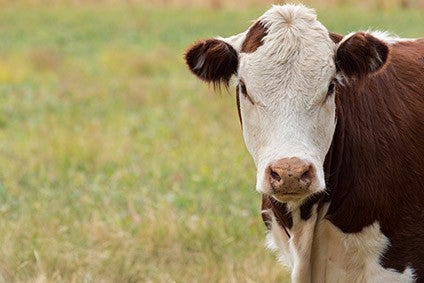
The US government is set to invest in the country’s meat-processing capacity and “revitalise” trading rules, arguing Covid-19 has demonstrated the industry needs more competition.
Some US$500m of the Biden administration’s “Build Back Better” investment in US infrastructure will be used for new meat and poultry processing facilities.
A further $155m will be used to support existing smaller processors in the US meat industry in areas such as expanding capacity and the cost of inspection fees.
The plan will also see the US government look to strengthen the country’s Packers and Stockyards Act, a law passed a century ago to protect farmers from unfair trading practices.
In response, The North American Meat Institute, the trade body representing meat and poultry companies in the US, warned of the “unintended consequences” of looking again at the Act.
Nonetheless, US Agriculture Secretary Tom Vilsack said the Biden administration’s announcement was a reaction to how Covid-19 had “exposed a food system that was rigid, consolidated, and fragile”.
How well do you really know your competitors?
Access the most comprehensive Company Profiles on the market, powered by GlobalData. Save hours of research. Gain competitive edge.

Thank you!
Your download email will arrive shortly
Not ready to buy yet? Download a free sample
We are confident about the unique quality of our Company Profiles. However, we want you to make the most beneficial decision for your business, so we offer a free sample that you can download by submitting the below form
By GlobalDataVilsack added: “The investments USDA [the US Department of Agriculture] will make in expanding meat and poultry capacity, along with restoration of the Packers and Stockyards Act, will begin to level the playing field for farmers and ranchers. This is a once-in-a-generation opportunity to transform the food system so it is more resilient to shocks, delivers greater value to growers and workers, and offers consumers an affordable selection of healthy food produced and sourced locally and regionally by farmers and processors from diverse backgrounds.”
The US government argues agricultural markets in the country have become “more concentrated and less competitive”, leading to a “squeeze” on farmers and ranchers.
It points to the US meat industry and how 80% of the country’s beef market is accounted for by “four large meat-packing companies”. During the early months of the pandemic, when processing facilities were closed, farmers faced an absence of customers and store shelves were short of products, the administration argues.
The US government believes the “risks” facing the market would grow amid the climate crisis and concerns over cybersecurity. Last month, JBS, one of the four beef processors that account for 80% of the US market, was hit by a breach that affected operations in the country.
The proposed changes to the Packers and Stockyards Act will see the USDA “clarify the conduct” it believes breaks regulations. The department, meanwhile, said it will “address oppressive practices in chicken processing” and “reinforce the longstanding USDA position that it is not necessary to demonstrate harm or likely harm to competition in order to establish a violation of the Act”.
Julie Anna Potts, president and CEO of the Meat Institute, said: “President Biden’s executive order calling for USDA to change the Packers and Stockyards rules will have unintended consequences for consumers and producers. Government intervention in the market will increase the cost of food for consumers at a time when many are still suffering from the economic consequences of the pandemic.
“These proposed changes will open the floodgates for litigation that will ultimately limit livestock producers’ ability to market their livestock as they choose. These proposals have been considered and rejected before and they are counter to the precedent set in eight federal appellate circuits.”







